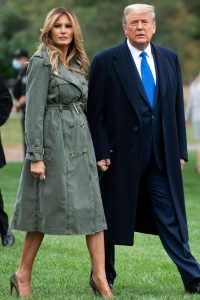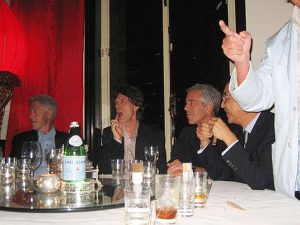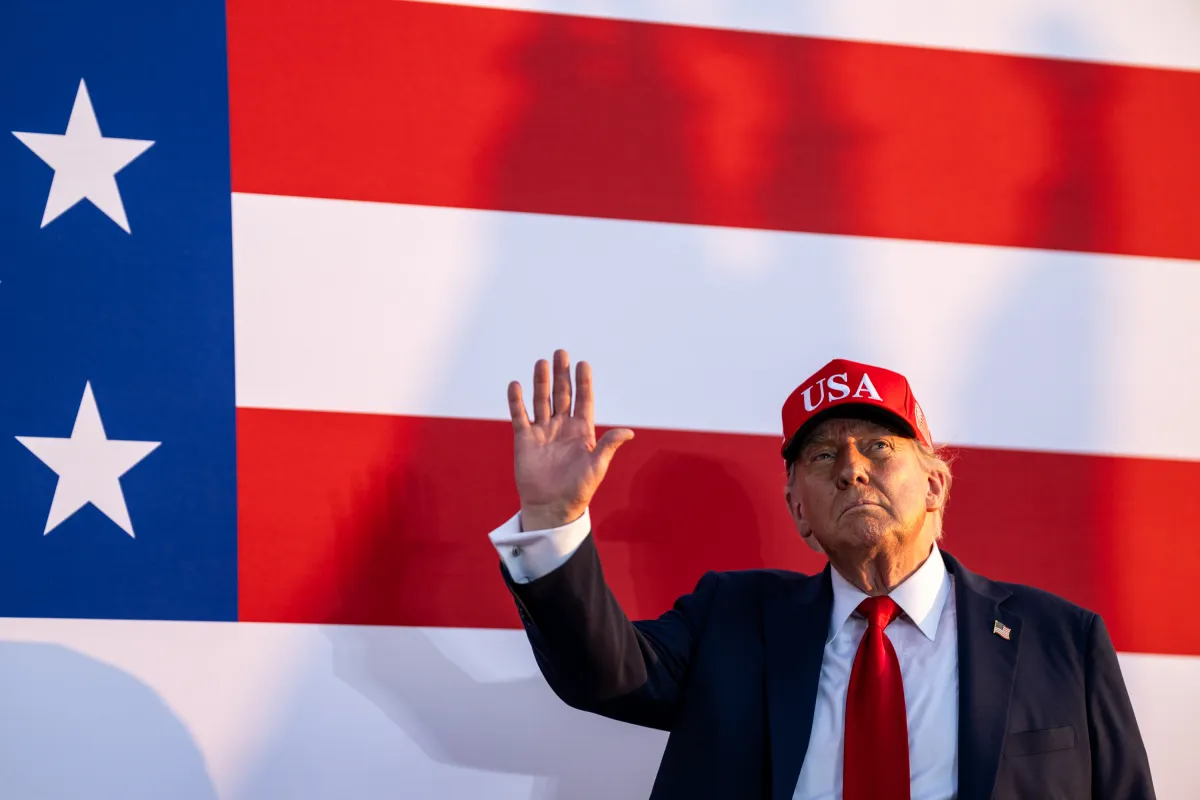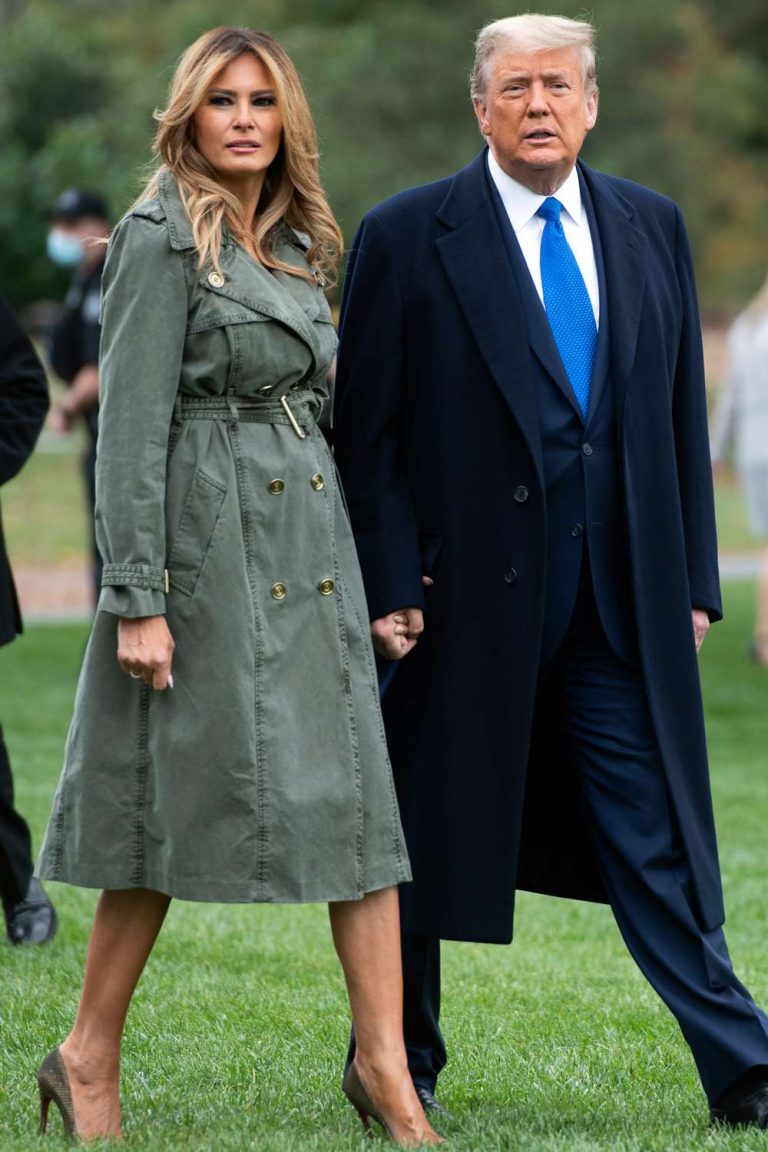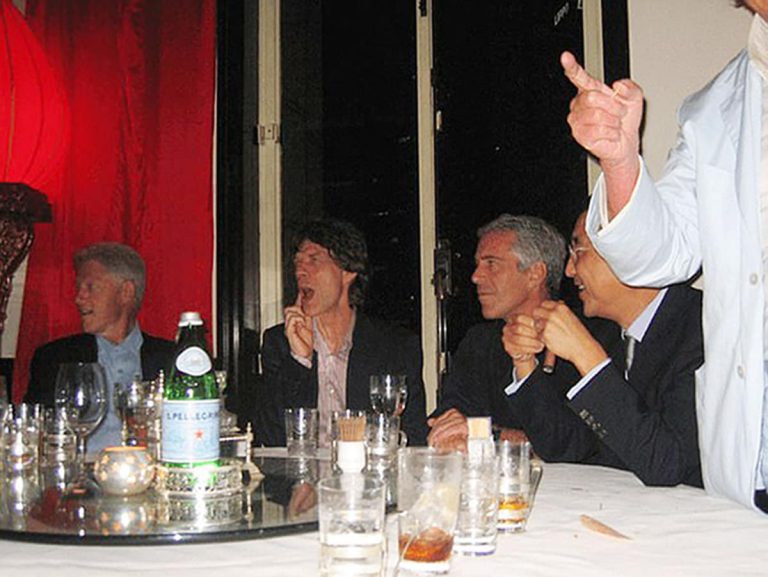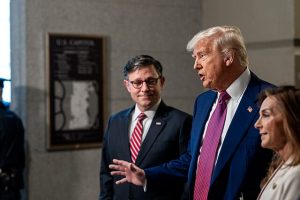In a tense exchange with the press this weekend, President Donald Trump reacted forcefully to a question about his approach to rising crime in Chicago. The back-and-forth unfolded on Sunday as the president spoke briefly with reporters before traveling to New York to attend the U.S. Open tennis tournament.
The question, posed by NBC News White House correspondent Yamiche Alcindor, touched on whether the administration was preparing to “go to war with Chicago” in response to the city’s high rates of violent crime. Alcindor, who frequently sparred with Trump during his first term in office, had framed her question in reference to a meme the president had recently shared on his Truth Social account.
Trump immediately dismissed the phrasing, labeling it misleading. “When you say that, darling, that’s fake news,” he remarked, initially in a restrained tone. When Alcindor attempted to interject, the president’s tone grew sharper. “Be quiet, listen!” he exclaimed, cutting off her follow-up. “You don’t listen! You never listen. That’s why you’re second-rate. We’re not going to war, we’re gonna clean up our cities. We’re gonna clean them up, so they don’t kill five people every weekend. That’s not war, that’s common sense.”
The moment highlighted Trump’s combative relationship with parts of the press and his willingness to push back against language he considers exaggerated or unfair. At the same time, it underscored the ongoing national debate about how best to address urban violence, particularly in cities such as Chicago, Baltimore, and New Orleans.
Context Behind the Question
The exchange came one day after Trump amplified a provocative meme online that drew from the imagery of the Vietnam War film Apocalypse Now. The meme, styled as a movie poster, depicted helicopters over the Chicago skyline and featured an illustration of Trump in military attire. Text over the image read, “I love the smell of deportations in the morning… Chicago about to find out why it’s called the Department of WAR.”
The post was a reference to Trump’s recent executive order restoring the Department of Defense’s historical name: the Department of War. Last Friday, he signed the measure, arguing that the rebranding would symbolize a renewed posture of strength and resolve. Prior to World War II, the Pentagon was formally known by that title.
Trump has said that reclaiming the original name signals both a return to tradition and a more direct acknowledgment of the agency’s purpose. His critics, however, contend that the move risks amplifying tensions by projecting an unnecessarily aggressive image.
Federal Involvement in Local Crime
Chicago has long been a flashpoint in the national conversation on crime. While its homicide totals are among the highest in the country, experts note that its per-capita murder rate is lower than that of several smaller U.S. cities, including Baltimore and New Orleans. Nonetheless, Chicago remains emblematic in political debates about public safety, policing, and federal intervention.
Trump, both during his first term and since returning to the White House, has made frequent references to Chicago’s crime statistics. He has argued that the federal government has a responsibility to step in if state and local authorities cannot control violence. In recent weeks, he has floated the possibility of deploying National Guard units to the city.
Similar measures have already been enacted elsewhere. In Washington, D.C., Trump ordered National Guard support and moved to assume direct control of the Metropolitan Police Department. Administration officials have also suggested that other cities could be considered for federal intervention, depending on local conditions and cooperation.
For Trump, the message is clear: “We’re not going to let crime destroy our cities.” But for critics, his willingness to use federal forces in local jurisdictions raises constitutional and civil liberties concerns.
The Reporter’s Role
Yamiche Alcindor’s question on Sunday reflected both her journalistic style and her history of challenging the president. Alcindor, a seasoned reporter with years of experience covering politics, has often pressed Trump on policy specifics and rhetoric.
Her use of the phrase “go to war with Chicago” drew directly from the president’s meme, but Trump rejected the wording as a misrepresentation of his intent. While Alcindor tried to clarify her point, Trump interrupted repeatedly, using the moment to reinforce his larger argument about cleaning up urban crime.
The exchange quickly spread online, with clips circulating across news and social media platforms. For Trump’s supporters, his response demonstrated strength and refusal to be cornered by media narratives. For his detractors, the moment was another example of hostility toward reporters and the press at large.
Symbolism and Political Messaging
Trump’s decision to rename the Department of Defense and his willingness to pair policy announcements with cultural references — like the Apocalypse Now meme — reflect his distinctive communication style. Rather than relying solely on formal speeches or press releases, Trump often blends humor, pop culture, and blunt statements into his political messaging.
This approach resonates strongly with his base, who see it as authentic and relatable. But it also creates controversy, as opponents argue that the use of military and war imagery risks trivializing serious issues.
The meme itself, with its reference to “deportations,” also pointed toward Trump’s broader immigration agenda. In his view, illegal immigration, urban violence, and national security are interconnected challenges requiring bold federal action.
Broader Implications
The Chicago episode highlights larger questions about the role of federal power in addressing local problems. While presidents have occasionally used federal forces to intervene in domestic matters — from Eisenhower enforcing school desegregation in Little Rock to the use of National Guard units during periods of unrest — such actions are always politically sensitive.
In Trump’s case, the combination of an executive order renaming the Pentagon and the prospect of deploying federal troops into American cities has sparked renewed debates about constitutional boundaries. Governors and mayors, particularly from Democratic-led states, have signaled that they will resist any overreach they see as undermining local authority.
At the same time, polls consistently show that crime remains one of the top concerns for American voters. For many citizens, the question is less about jurisdictional boundaries and more about results. If federal involvement is perceived to improve safety, it may prove politically advantageous for the president.
Looking Ahead
Trump’s comments at the U.S. Open gaggle are unlikely to be the last word on the matter. His administration has signaled that further announcements on urban crime initiatives could be forthcoming in the weeks ahead. Whether those measures include the deployment of federal personnel to Chicago or other cities remains to be seen.
Meanwhile, the president’s relationship with the press continues to shape public perceptions. The back-and-forth with Alcindor reflects a broader pattern: Trump sees himself as standing up to what he calls “fake news,” while reporters see their role as holding him accountable. The result is frequent clashes that dominate headlines and frame political narratives.
As the fall political season intensifies, both Trump’s aggressive style and the nation’s ongoing struggles with crime are expected to remain central issues. For now, Sunday’s exchange serves as a vivid reminder of the charged atmosphere surrounding debates on law, order, and the balance of power between federal and local government.

James Jenkins is a celebrated Pulitzer Prize-winning author whose work has reshaped the way readers think about social justice and human rights in America. Raised in Atlanta, Georgia, James grew up in a community that instilled in him both resilience and a strong sense of responsibility toward others. After studying political science and creative writing at Howard University, he worked as a journalist covering civil rights issues before dedicating himself fully to fiction. His novels are known for their sharp, empathetic portraits of marginalized communities and for weaving personal stories with broader political realities. Jenkins’s breakout novel, Shadows of Freedom, won national acclaim for its unflinching look at systemic inequality, while his more recent works explore themes of identity, resilience, and the fight for dignity in the face of oppression. Beyond his novels, James is an active public speaker, lecturing at universities and participating in nonprofit initiatives that support literacy and community empowerment. He believes that storytelling is a way to preserve history and inspire change. When not writing, James enjoys jazz music, mentoring young writers, and traveling with his family to explore cultures and stories around the world.

